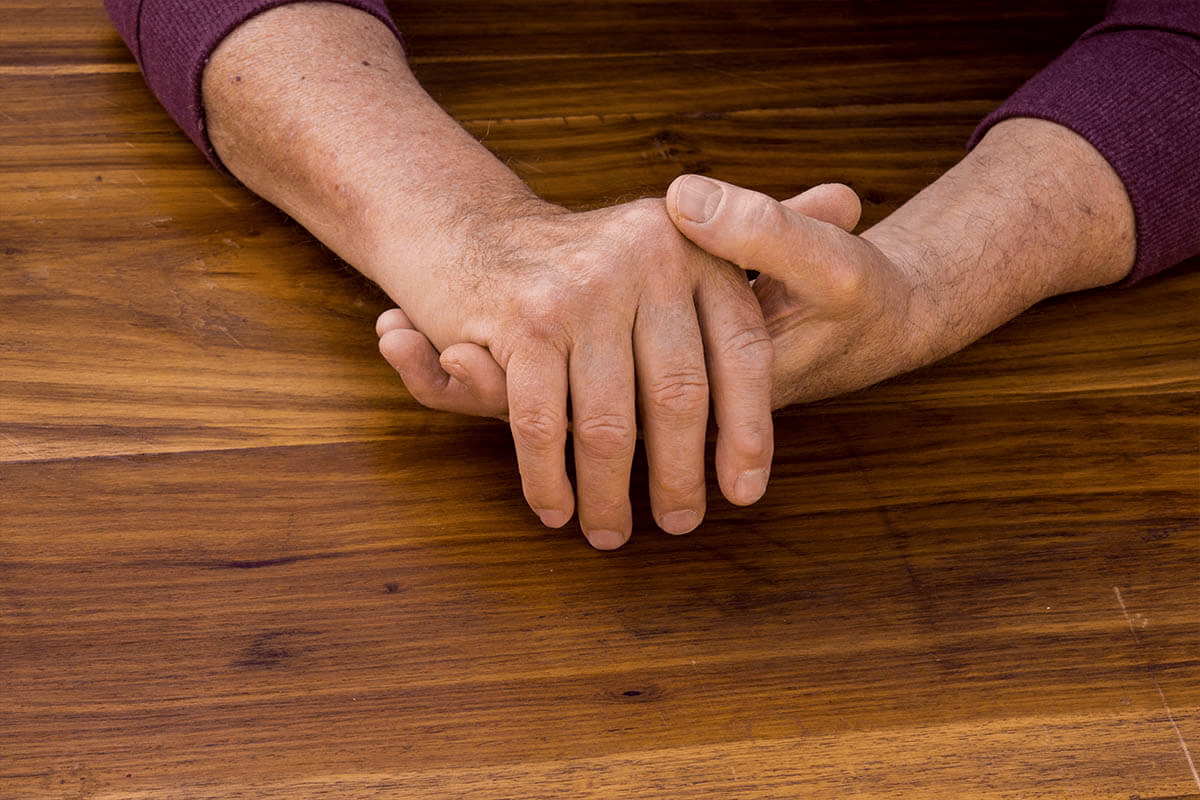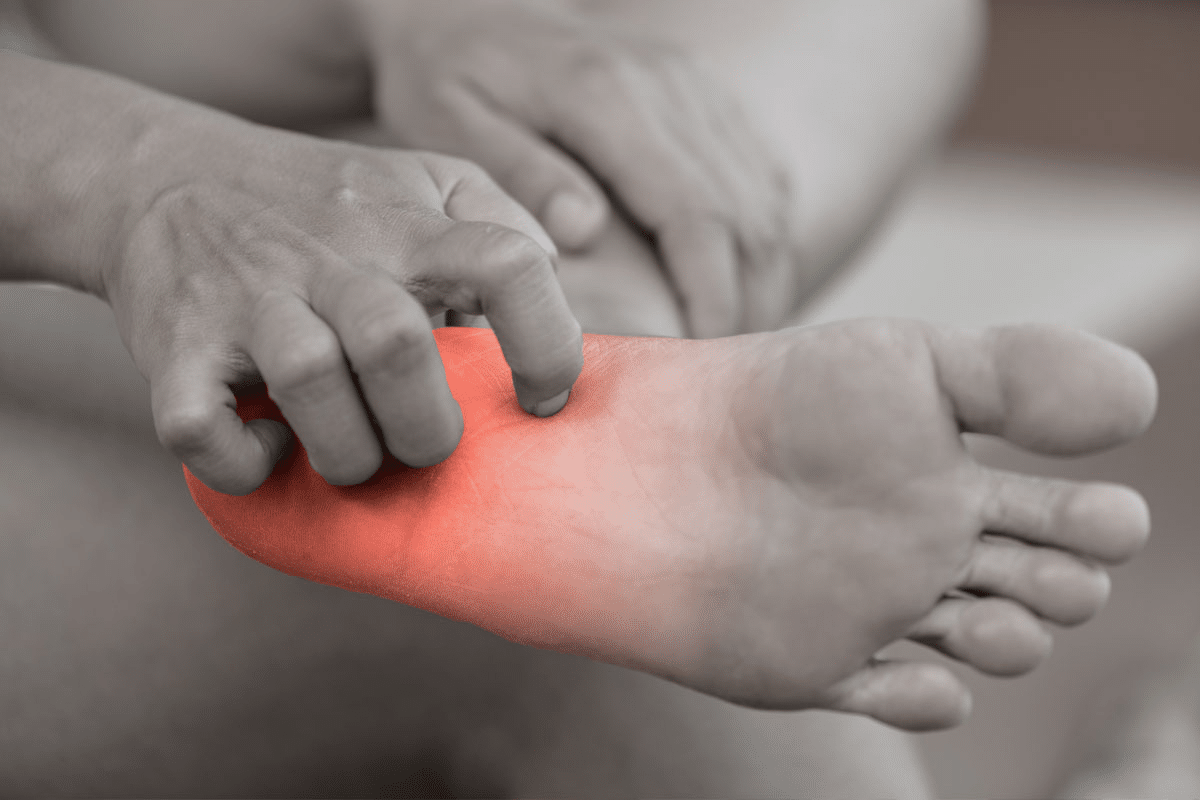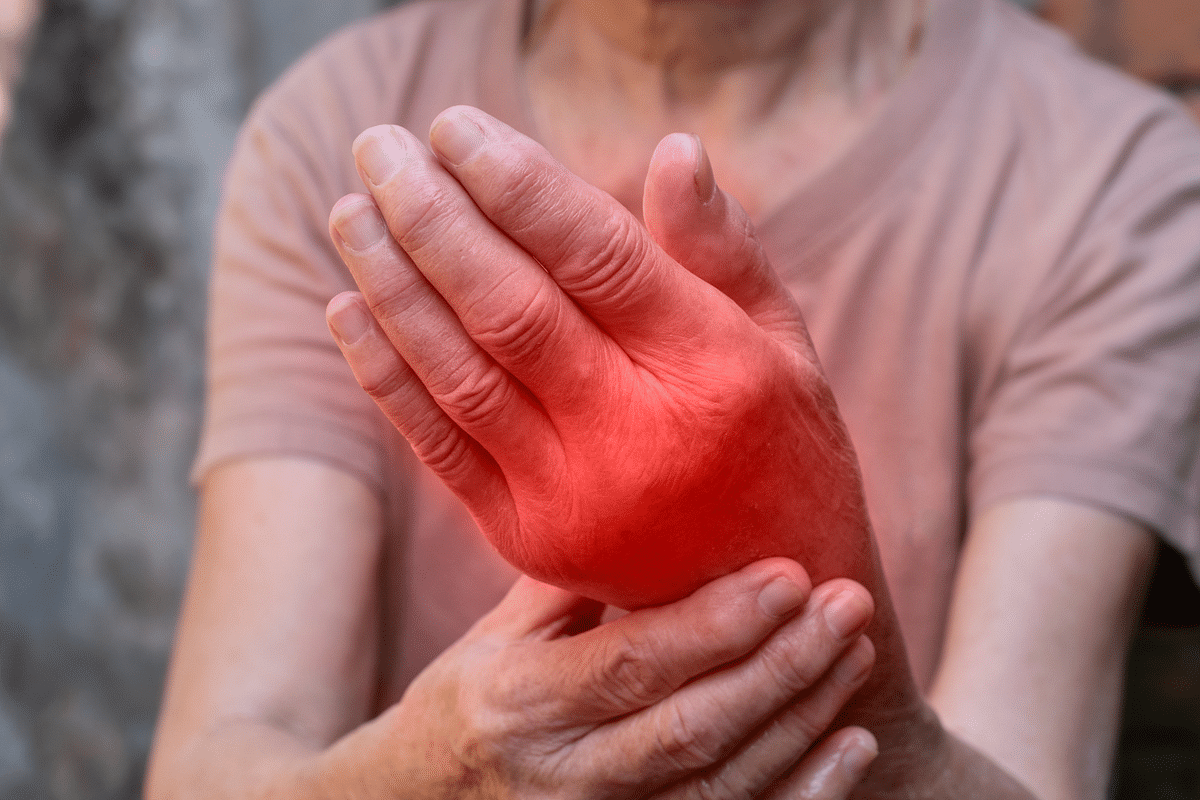
Hypertension, or high blood pressure, is a big health problem worldwide. It affects over one billion people. It’s a major risk for heart attack, stroke, and kidney disease. At Liv Hospital, we offer top-notch healthcare for international patients.
Learn what causes high blood pressure and how to prevent or manage it effectively.
Knowing why high blood pressure happens is key to stopping it. Many things can lead to it, like genes, lifestyle, and health issues. By understanding these, we can find better ways to prevent and manage it.
Key Takeaways
- Hypertension affects over one billion people worldwide.
- Genetics, lifestyle, and medical conditions contribute to high blood pressure.
- Understanding the causes is key to prevention and management.
- Liv Hospital provides top care for international patients.
- Good management can lower the risk of heart and stroke diseases.
Understanding Hypertension and Its Global Impact

Hypertension, or high blood pressure, is a big health problem worldwide. We will look into what it is, how it’s measured, and how common it is globally.
What Is High Blood Pressure and How Is It Measured?
Blood pressure is checked with two numbers: systolic and diastolic. Systolic blood pressure is when the heart beats. Diastolic blood pressure is between beats. If your blood pressure is too high over two visits, you have hypertension.
Specifically, if your systolic blood pressure is ≥140 mmHg and/or your diastolic blood pressure is ≥90 mmHg on two different days, you have hypertension.
Knowing these numbers is key because high blood pressure often has no symptoms. This makes it a silent killer. Regular blood pressure checks can help catch and manage it early.
The Worldwide Prevalence of Hypertension
Hypertension is becoming more common worldwide, with big differences in different places. The World Health Organization (WHO) says it’s a big reason for heart disease globally. This shows we need to spread awareness, prevent it, and find ways to manage it.
Hypertension is a big health issue worldwide, affecting many people. By knowing what causes high blood pressure spikes and other factors, we can fight it better.
What Causes High Blood Pressure: Primary vs. Secondary Hypertension

Hypertension affects millions globally. It’s divided into primary (essential) and secondary hypertension. Knowing the difference is key for managing and treating it.
Essential (Primary) Hypertension Explained
Primary hypertension is the most common, making up 90-95% of cases. It’s caused by genetics, environment, and lifestyle. Let’s look at some main factors:
- Genetic predisposition
- Dietary habits, including high sodium intake
- Obesity and physical inactivity
- Stress and psychological factors
The American Heart Association says lifestyle changes can prevent or delay high blood pressure.
“A healthy lifestyle can help lower blood pressure and keep it at a healthy level,” says the American Heart Association.
Secondary Hypertension and Underlying Medical Conditions
Secondary hypertension is caused by a medical condition or medication. Common causes include:
| Cause | Description |
| Kidney disease | Conditions like chronic kidney disease can lead to hypertension. |
| Adrenal gland tumors | Tumors like pheochromocytoma cause excessive hormone production, raising blood pressure. |
| Certain medications | Some medications, like NSAIDs and decongestants, can increase blood pressure. |
Treating the cause of secondary hypertension can solve the high blood pressure. So, finding the root cause is vital for effective treatment.
Genetic and Age-Related Factors
Genetics and aging are big reasons for high blood pressure. Knowing about these can help spot and stop high blood pressure early.
Family History and Genetic Predisposition
If your family has high blood pressure, you might get it too. Studies show genes play a big part in blood pressure. Genetic predisposition can make some people more likely to have high blood pressure.
Having a family history of high blood pressure is a big risk sign. It could mean you have a genetic link. Research has found genes that help control blood pressure. Changes in these genes can make you more likely to have high blood pressure.
| Genetic Factor | Impact on Blood Pressure |
| Gene variations affecting kidney function | Increased sodium retention, leading to higher blood pressure |
| Genes influencing blood vessel constriction | Narrowing of blood vessels, increasing blood pressure |
| Hormonal regulation genes | Affects blood pressure through hormonal imbalances |
How Aging Affects Blood Pressure Levels
As we get older, our blood vessels get stiffer and narrower. This can make blood pressure go up.
Our blood vessels lose elastic fibers with age. This is called arteriosclerosis. It makes systolic blood pressure readings go up, which is common in older people.
Knowing how aging affects blood pressure helps in managing it. Regular checks and lifestyle changes can help reduce age-related risks.
Dietary Causes of High Blood Pressure
Diet is key in managing high blood pressure. What we eat can either raise or lower our blood pressure. It’s important to choose the right foods.
High Sodium Intake and Salt Sensitivity
Too much salt is bad for blood pressure. High sodium intake can make blood pressure go up in some people. The American Heart Association says to keep sodium under 2,300 milligrams a day. For most adults, aim for 1,500 milligrams.
To lower blood pressure, cut down on salt. Avoid salty processed foods. Use herbs and spices to flavor your food instead.
Other Dietary Factors That Raise Blood Pressure
Other foods can also raise blood pressure. These include:
- Low potassium intake: Potassium balances sodium. Eating more fruits and vegetables can help lower blood pressure.
- High alcohol consumption: Drinking too much alcohol can increase blood pressure and heart disease risk.
- Diet lacking in fruits and vegetables: Eating more whole foods can help manage blood pressure.
Eating a balanced diet is important for blood pressure. Choose foods that are good for you and avoid harmful ones. This can help prevent or manage high blood pressure.
Lifestyle-Related Causes of Hypertension
Lifestyle choices are key in developing hypertension. Knowing these factors helps in prevention and management. Our daily habits greatly affect our blood pressure. It’s important to keep our blood pressure healthy.
Obesity and Weight Management
Obesity is a big risk for hypertension. It’s linked to other heart risks. Excess weight can raise blood pressure through insulin resistance and more.
Keeping a healthy weight is vital. This can be done through diet and exercise.
Key strategies for weight management include:
- Eating a balanced diet with fruits, veggies, and whole grains
- Doing regular physical activity like walking or swimming
- Working towards a healthy BMI through safe weight loss
Physical Inactivity and Sedentary Behavior
Being inactive and sitting too much can lead to high blood pressure. Exercise lowers blood pressure and improves heart health. But sitting too long can harm your health.
Benefits of regular physical activity include:
- Improved heart function
- Stronger muscles
- Better weight control
Smoking and Tobacco Use
Smoking is a big risk for high blood pressure and heart disease. Tobacco harms blood vessels and raises blood pressure. Quitting is key to managing hypertension.
Resources for quitting smoking include:
- Nicotine replacement therapy (gum, patches, lozenges)
- Prescription medications (e.g., bupropion, varenicline)
- Counseling and support groups
Understanding lifestyle causes of hypertension helps in prevention and management. A healthy lifestyle is essential. This includes a balanced diet, regular exercise, and avoiding smoking.
Medical Conditions That Cause the Blood Pressure to Be High
Many health problems can lead to high blood pressure. It’s important to manage these issues well. Some medical conditions can really affect blood pressure levels. Knowing about these conditions helps manage hypertension better.
Chronic Kidney Disease and Renal Function
Chronic kidney disease (CKD) is a big risk for high blood pressure. The kidneys help control blood pressure by managing fluids and electrolytes. Damage to the kidneys can make blood pressure go up.
The link between CKD and high blood pressure is complex. But, managing CKD can help control blood pressure. This can be done through lifestyle changes and medical treatments.
| Stage of CKD | Description | Impact on Blood Pressure |
| Stage 1 | Kidney damage with normal or increased GFR | Mild increase in blood pressure |
| Stage 3 | Moderate reduction in GFR | Noticeable increase in blood pressure |
| Stage 5 | Kidney failure | Significant hypertension |
Diabetes and Insulin Resistance
Diabetes is a major condition that can cause high blood pressure. Insulin resistance, often seen in type 2 diabetes, can also raise blood pressure. This is because it affects the blood vessels and kidneys.
Managing diabetes through diet, exercise, and medication can help control blood pressure. Keeping blood sugar levels in check is key to avoiding heart problems.
Obstructive Sleep Apnea and Sleep Quality
Obstructive sleep apnea (OSA) is a sleep disorder that interrupts breathing during sleep. It leads to poor sleep quality and low blood oxygen. OSA is closely linked with high blood pressure because of these sleep disruptions.
Treating OSA with CPAP therapy or other methods can improve sleep. This can help lower blood pressure.
What Causes High Blood Pressure Spikes: Stress and Psychological Factors
It’s important to know how stress and mental health affect blood pressure. Stress and psychological factors can make blood pressure go up. So, it’s key to include them in any plan to manage high blood pressure.
Chronic Stress and Its Physiological Impact
Chronic stress can raise blood pressure in several ways. When we’re stressed, our body goes into “fight or flight” mode. This releases hormones like cortisol and adrenaline. These hormones make our heart beat faster and our blood vessels narrow, raising blood pressure.
Long-term stress can harm our heart health. Chronic stress is linked to a higher risk of high blood pressure and heart disease. So, managing stress is vital for keeping blood pressure healthy.
Anxiety, Depression, and Blood Pressure Fluctuations
Anxiety and depression can also affect blood pressure. Studies show that people with anxiety may see blood pressure changes. This is because anxiety affects our body in ways that can change blood pressure.
“The relationship between anxiety, depression, and hypertension is complex, with each condition potentially influencing the others.”
Depression is also linked to blood pressure changes, but we don’t know all the reasons why. It’s thought that lifestyle choices linked to depression, like bad eating and not exercising, might play a role.
| Psychological Factor | Impact on Blood Pressure |
| Chronic Stress | Increases blood pressure through stress hormones |
| Anxiety | Causes fluctuations in blood pressure |
| Depression | Associated with changes in blood pressure, potentially due to lifestyle factors |
Knowing how stress and mental health affect blood pressure helps us find better ways to manage it. We can use stress-reducing activities like meditation and deep breathing. We also need to treat mental health issues properly.
Medication and Substance-Related Causes
It’s important to know how some medicines and substances can affect blood pressure. These items might be needed for health issues, but they can also raise blood pressure.
Prescription Medications That Raise Blood Pressure
Some medicines can make blood pressure go up. For example, certain NSAIDs can harm kidney function and affect fluid balance, leading to hypertension. Decongestants in cold and allergy meds can also increase blood pressure by making the heart work harder and narrowing blood vessels.
Some antidepressants and corticosteroids can also raise blood pressure. People taking these should keep an eye on their blood pressure and talk to their doctor about any worries.
Alcohol Consumption and Hypertension
Drinking too much alcohol can increase the risk of high blood pressure. Alcohol can harm the heart and blood vessels, making heart disease more likely.
Drinking less can help control blood pressure. The American Heart Association suggests men drink no more than two drinks a day. Women should limit their intake to one drink a day. Being careful about alcohol can help manage blood pressure.
Conclusion: Managing and Preventing Hypertension
Knowing what causes high blood pressure is key to preventing and managing it. By understanding the factors that lead to hypertension, people can take steps to lower their risk. At Liv Hospital, we offer top-notch care for international patients looking for advanced medical treatments.
Controlling and preventing high blood pressure needs a full approach. This includes making lifestyle changes and getting the right medical care. A healthy lifestyle, knowing your risk factors, and getting the right medical help can greatly reduce your risk. Diet, exercise, and managing stress are all important in preventing high blood pressure.
Being informed about high blood pressure and taking action can help manage the condition. At Liv Hospital, we support international patients with all they need to understand and treat hypertension.
FAQ
What are the main causes of high blood pressure?
High blood pressure comes from genetics, lifestyle, and medical conditions. Primary hypertension is caused by many factors like diet and lifestyle. Secondary hypertension is due to specific health issues or medicines.
How does diet affect blood pressure?
Eating too much sodium can raise blood pressure. But, a diet full of fruits, veggies, and whole grains can help keep it in check.
What lifestyle factors contribute to hypertension?
Staying at a healthy weight, exercising regularly, and not smoking are key. These habits help prevent and manage high blood pressure.
Can certain medical conditions lead to high blood pressure?
Yes, conditions like kidney disease, diabetes, and sleep apnea can cause high blood pressure. Managing these conditions is vital for controlling blood pressure.
How does stress affect blood pressure?
Stress, anxiety, and depression can raise blood pressure. It’s important to take care of your mental health to manage hypertension.
Can certain medications raise blood pressure?
Yes, some medicines can increase blood pressure. Knowing their side effects is key to managing hypertension.
How does aging affect blood pressure levels?
As we get older, our blood vessels stiffen. This increases the risk of high blood pressure.
What is the role of genetics in high blood pressure?
A family history of hypertension raises your risk. This shows how important genetics are in high blood pressure.
How does alcohol consumption affect blood pressure?
Drinking too much alcohol can lead to high blood pressure. It’s important to understand its impact on blood pressure.
Why is managing high blood pressure important?
High blood pressure is a silent killer. It often has no symptoms until it causes serious health problems. Managing it through lifestyle changes and medical care is vital.
References:
National Center for Biotechnology Information. (2025). 10 Common Causes of High Blood Pressure Hypertension. Retrieved from https://www.ncbi.nlm.nih.gov/pmc/articles/PMC7998524/








